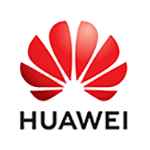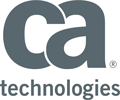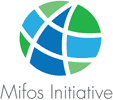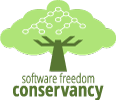Tensorflow
9:00am–12:30pm Monday, July 16, 2018
Location: Portland 251/252
Level: Intermediate
 Joshua Gordon (Google)
Joshua Gordon (Google)
Average rating:





(4.10, 20 ratings)
Josh Gordon leads a friendly introduction to deep learning, covering computer vision, natural language processing, and structured data classification. You'll learn how to use TensorFlow—the world’s most popular open source machine learning library—preview the latest APIs, explore best practices, and discover the resources that will help you continue learning.
Read more.
9:00am - 5:00pm Monday, July 16 & Tuesday, July 17
Location: F150
 Rich Ott (The Pragmatic Institute)
Rich Ott (The Pragmatic Institute)
Average rating:





(4.50, 2 ratings)
Incorporating machine learning capabilities into software or apps is quickly becoming a necessity. Rich Ott leads you through two days of intensive learning that include a review of linear algebra essential to machine learning, an introduction to TensorFlow, and a dive into neural networks.
Read more.
9:00am–5:00pm Tuesday, July 17, 2018
Location: B115-116
The TensorFlow Community Day brings together TensorFlow contributors and users to share experiences, increase collaboration, and advance the state of open source machine learning.
Read more.
9:00am–5:00pm Tuesday, July 17, 2018
Location: B115-116
















 Edd Wilder-James (Google),
Sandeep Gupta (Google),
Hallie Benjamin (Google),
Edd Wilder-James (Google),
Gunhan Gulsoy (Google Brain),
Ton Ngo (IBM),
Yi-Hong Wang (IBM),
Sherol Chen (Google),
Hannes Hapke (SAP ConcurLabs),
Paige Bailey (Microsoft),
Fabio Buso (Logical Clocks AB),
Scott Soutter (IBM),
Jason Furmanek (IBM),
Gabriela de Queiroz (IBM),
Augustina Ragwitz (IBM),
alex kari (Camas Liberty Middle School),
Al Kari (Manceps),
Edd Wilder-James (Google)
Edd Wilder-James (Google),
Sandeep Gupta (Google),
Hallie Benjamin (Google),
Edd Wilder-James (Google),
Gunhan Gulsoy (Google Brain),
Ton Ngo (IBM),
Yi-Hong Wang (IBM),
Sherol Chen (Google),
Hannes Hapke (SAP ConcurLabs),
Paige Bailey (Microsoft),
Fabio Buso (Logical Clocks AB),
Scott Soutter (IBM),
Jason Furmanek (IBM),
Gabriela de Queiroz (IBM),
Augustina Ragwitz (IBM),
alex kari (Camas Liberty Middle School),
Al Kari (Manceps),
Edd Wilder-James (Google)
The TensorFlow Community Day brings together TensorFlow contributors and users to share experiences, increase collaboration, and advance the state of open source machine learning.
Read more.
1:30pm–5:00pm Tuesday, July 17, 2018
Location: E143/144
Level: Beginner
Average rating:





(5.00, 2 ratings)
Join Jonathon Manning, Tim Nugent, and Paris Buttfield-Addison to get up to speed with the new machine learning features of iOS and learn how to apply the Vision and Core ML frameworks to solve practical problems in object detection, face recognition, and more. These frameworks run on-device, so they work quickly with no network access, making them cost effective and user-privacy conscious.
Read more.
11:50am–12:30pm Wednesday, July 18, 2018
Location: Portland 251
Level: Intermediate
 Joseph Gregorio (Google)
Joseph Gregorio (Google)
Average rating:





(4.20, 5 ratings)
Your continuous integration process produces torrents of data. Joseph Gregorio explains how to mine that data to drive improvements in your development process and offers an overview of Skia—an open source 2D graphics library that provides common APIs that work across a variety of hardware and software platforms.
Read more.
2:35pm–3:15pm Wednesday, July 18, 2018
Location: Portland 251
Level: Intermediate
 Holden Karau (Independent)
Holden Karau (Independent)
Average rating:





(2.20, 5 ratings)
TensorFlow is all kinds of fancy, from helping startups raising their series A in Silicon Valley to detecting if something is a cat. Holden Karau details how to use TensorFlow in conjunction with Apache Spark, Flink, and Beam to create a full machine learning pipeline.
Read more.
4:15pm–4:55pm Wednesday, July 18, 2018
Location: D137/138
Level: Beginner
 Rustem Feyzkhanov (Instrumental)
Rustem Feyzkhanov (Instrumental)
Average rating:





(3.00, 1 rating)
This year TensorFlow 1.4 was released. Rustem Feyzkhanov explains how he ported it to AWS Lambda and built an image recognition tool. The tool is cheaper than almost any alternatives and very scalable (a thousand functions can be run in parallel), and it integrates into cloud infrastructure.
Read more.
1:45pm–2:25pm Thursday, July 19, 2018
Location: E146
Level: Intermediate
Average rating:





(5.00, 1 rating)
By the year 2020, the world will have an estimated 20 billion IoT devices. Storing, processing, reasoning with, and extracting business value out of this data will require huge computational and financial resources. Matt Ellis and Rei Kurokawa share an approach that uses TensorFlow and Project Flogo to make predictions directly on edge devices without depending on cloud computing.
Read more.
Premier Diamond Sponsors
Diamond Sponsors
Elite Sponsor
Rhodium Sponsor
Gold Sponsors
Silver Sponsors
Supporting Sponsors
Premier Exhibitors
Exhibitors
Innovators
Non-Profit Exhibitors
Sponsorship Opportunities
For exhibition and sponsorship opportunities, email oscon@oreilly.com
Partner Opportunities
For information on trade opportunities with O'Reilly conferences, email partners@oreilly.com
Contact Us
View a complete list of OSCON contacts
©2018, O'Reilly Media, Inc. • (800) 889-8969 or (707) 827-7019 • Monday-Friday 7:30am-5pm PT • All trademarks and registered trademarks appearing on oreilly.com are the property of their respective owners. • confreg@oreilly.com




























